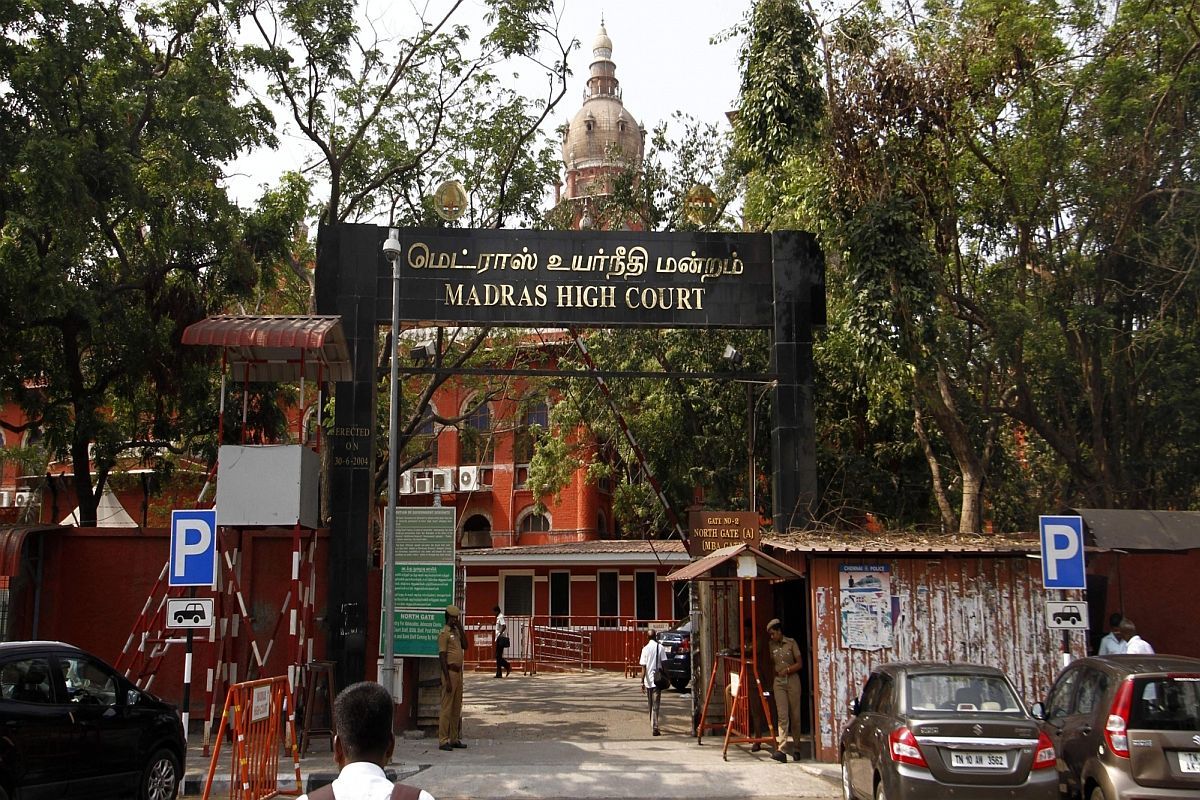Pitch for TN
Amidst the kaleidoscope of Tamil Nadu’s political landscape, the Bharatiya Janata Party (BJP) finds itself entangled in a complex web of identity, ideology, and electoral aspirations.
Most beneficiaries of private charity are without ration cards, bank accounts or even a fixed home address and fall outside the purview of government agencies. The reason given by the government for this ban order is that non-government agencies are not maintaining “social distancing” properly.

Madras High Court (File Photo: IANS)
Non-governmental organisations, charitable institutions, civil society and public-spirited individuals with large hearts rendering yeoman service to people left out of any government largesse in Tamil Nadu during these lockdown days had the shock of their lives when the government of Edappadi Palaniswami banned their activities and ordered them to route their services through his government and its agencies.
Most beneficiaries of private charity are without ration cards, bank accounts or even a fixed home address and fall outside the purview of government agencies. The reason given by the government for this ban order is that non-government agencies are not maintaining “social distancing” properly.
The ban order issued by the Director, Information and Public Relations, says that food, groceries and vegetables should not be distributed directly by either the political parties or charitable organisations and that they must be handed over to Corporation Commissioners in municipalities and Municipal Commissioners and Executive Officers in town panchayats and Block Development Officers in panchayats.
Advertisement
When the order was challenged, the Madras High Court observed the State was fully justified in imposing certain conditions for distribution of relief measures to the needy during the lockdown to fight the spread of the deadly coronavirus. It ruled that individuals or group of individuals shall intimate the district authorities concerned 48 hours in advance to distribute food and other materials to the poor.
A Division Bench of the High Court comprising Justices R Subbiah and R Pongiappan said, “We do not see any irrationality or arbitrariness in requiring individuals or group of individuals from seeking prior permission from the authorities concerned.
Having regard to the magnitude of the situation which the State is presently combating, it is very much essential that the organisers and the beneficiaries strictly adhere to certain norms with a view to regulating distribution of food and other items.
Such a condition was imposed only to ensure that there will not be any further spread of the malevolent disease,” and laid down 10 directives to be observed, which cumulatively were enough to discourage any volunteer. The Chief Minister does not brook any one, including his Cabinet colleagues, sharing kudos.
Tamil Nadu has an enviable reputation and tradition of social work with many NGOs, voluntary organisations and civil society doing yeoman service whenever the occasion demands. When the virus struck, the first thing the Kerala Chief Minister Pinarayi Vijayan did was to convene an all-party meeting and constitute an 18-member non-party response team to jointly fight the menace.
Civil society was encouraged to reach those whom government agencies were unable to reach. The result is there for all to see. In Tamil Nadu, even at this late stage Chief Minister Palaniswamy would not yield to the pleas of the DMK Opposition leader, MK Stalin, to convene an all-party meeting.
Advertisement